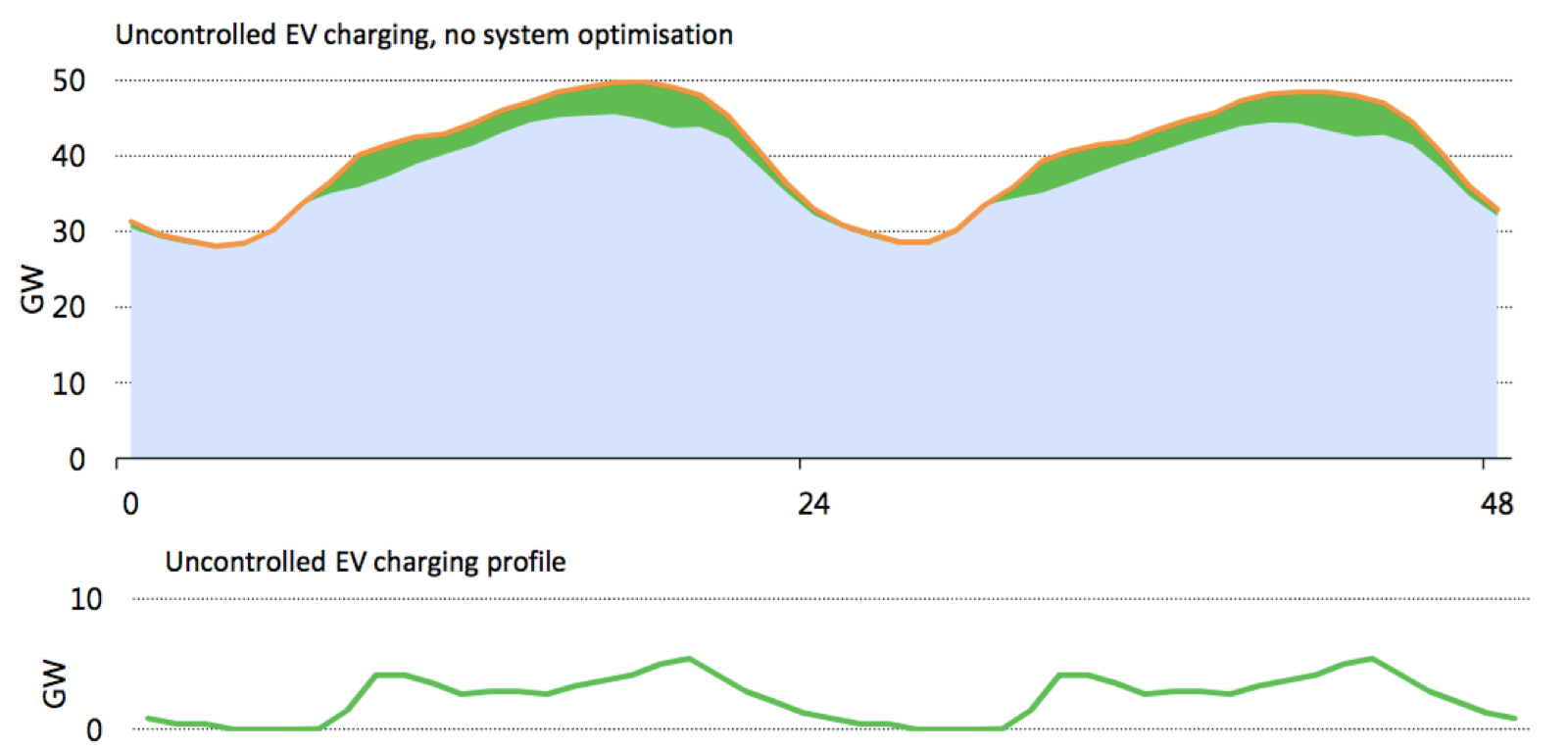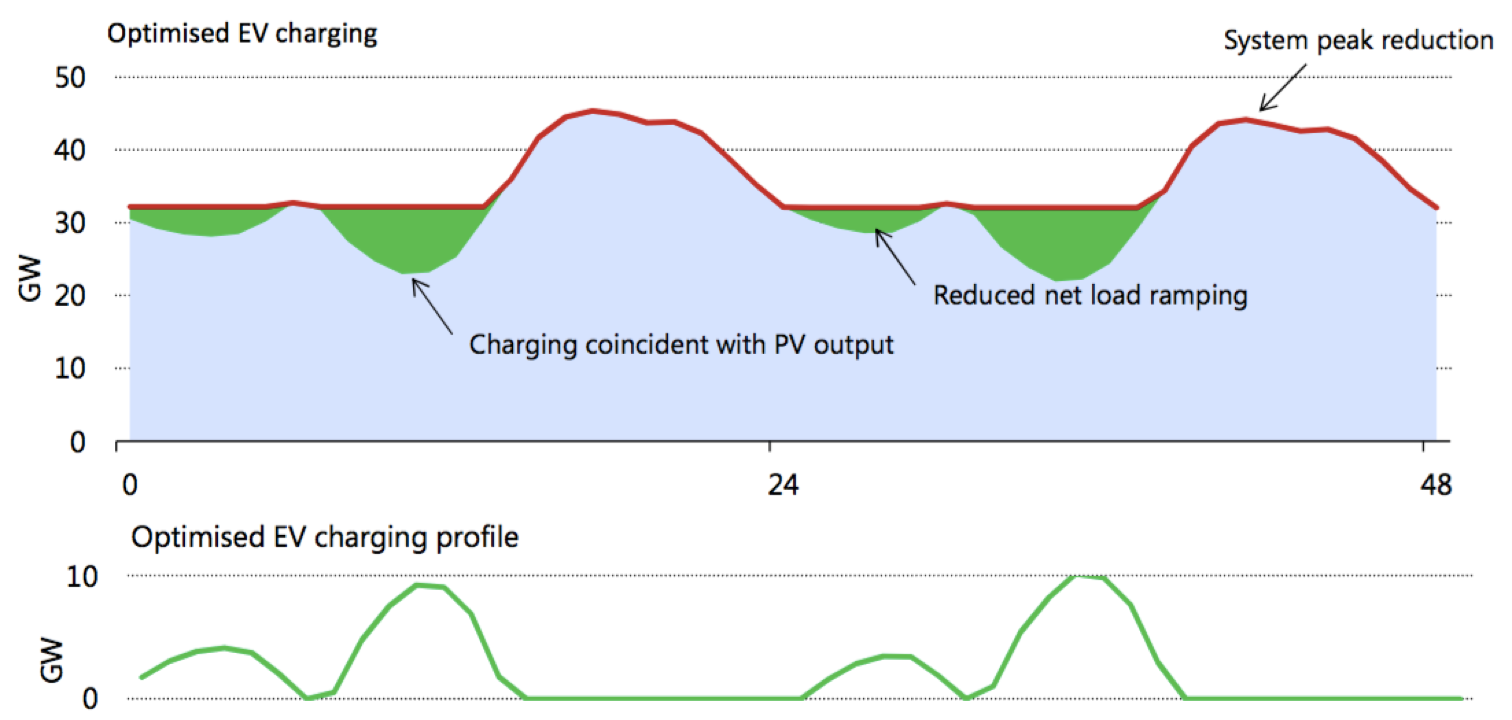What is smart charging, and why do our energy systems need it?
Even though the rise of EVs can seem like a threat to our energy systems because of high energy demand, the reality is not too grim. Thanks to smart charging, EVs can actually contribute to the flexibility of the energy system and make it more efficient, safer, and greener.
But what does it mean in practice? And why should you care? We'll get into all that, but first, let’s start with the basics.
What is EV smart charging?
Smart charging of electric vehicles is a system that connects an electric vehicle, a charging device and a charging operator through a data connection.
Stabilising the grid and offering a great charging experience
Smart charging is a cloud-based technology that makes it possible to remotely adjust how much energy is used by EVs based on the current state of the energy grid which affects how pricey charging events are for EV drivers. Taking advantage of cheaper electricity at specific times of day saves costs for both grid operators and EV drivers.
By smartly managing the charging, we can also better match it to renewable energy production and increase the use of renewables in our everyday lives.
Additionally, smart charging makes it possible to utilise the energy stored in EV batteries to meet sudden spikes in energy demand, thus supporting the grid. We call this technology vehicle-to-grid (V2G).
> Read more about vehicle-to-grid (V2G).
Did you know?Finland was the first country in Europe to include a definition of smart charging in legislation. |
Why should you care about smart charging?
Smart charging isn’t just another fancy technology we like to brag about. It’s an important part of making sure EVs don’t burden our energy systems, but become helpful tools in balancing demand and taking full advantage of renewable energy production.
Having more electric cars on the roads calls for better energy efficiency
The number of electric vehicles is constantly growing worldwide, and it could become a problem (if we don’t do something about it).

As countries are setting new rules to 1. reduce and 2. eliminate the sale of ICE vehicles in the next two decades, we can only expect the global electric car fleet to increase greatly in the coming years.
From this point of view, EVs may appear to threaten our current energy systems and raise concerns.
For now, those concerns are irrelevant. Our electricity grids can already sustain hundreds of thousands of cars charging simultaneously, and according to the European Environment Agency (EEA), the energy demand of EVs will not significantly impact our electricity systems until at least 2030.
The International Energy Agency (IEA) predicts that in 2035, the share of electricity used by EVs will remain small compared to demand for industrial applications, appliances, or heating and cooling.
It’s also worth considering that road transport electrification results in overall reductions in energy consumption, given that electric cars are more efficient than internal combustion engine (ICE) cars.
But as the number of EVs rises, and we predict it will only rise higher, we must rethink how we store and distribute electricity, or our energy systems will not be able to meet tomorrow’s demand.
This is where smart charging comes in to alleviate the pressure. But the benefits of smart charging do not end there.
|
The newest EU regulation, AFIR (Alternative Future Infrastructure Regulation) mandates that all EV charging points should support smart charging. |
The entire energy sector is transforming
As we’re moving towards environmentally friendlier energy production methods, our usage of renewable energy resources is increasing fast.
For example, in the EU, 50% of public electricity generation came from renewable sources in the first half of 2024.
Renewables are an uncertain source of energy
Don’t get me wrong; we at Virta love renewables! More than that, mastering renewables is necessary for us to slow down the clock and win our fight against climate change.
However, there is a significant problem; renewables produced from wind and solar power depend highly on the weather and, therefore, are highly volatile.
For example, during a sunny weekend, the solar power generation is high, but as there aren't many EVs charging during the sunny day, the consumption is low. Then, in the evenings, when most EVs plug in to charge, the sun is down resulting in no solar power available. Simply put, with renewables, the power generation does not match the power consumption.
That means that we can’t only rely on renewables to deliver a constant supply of energy to sustain our cities, factories and supermarkets.
But, a solution already exists. Yes, you guessed it - it's smart charging.
How does smart charging work?
With a standard 22kw EV charging station, we estimate that 6 or 7 hours are enough to charge an electric vehicle’s battery. On a 50kw fast-charging station, the time needed to fully charge a battery falls under one hour.
As most EV drivers plug their cars mainly at home and at work, we know that electric vehicles stay plugged in for a longer time than necessary.
With smart charging, cars can stay plugged in and only charge when it is the most efficient, both cost-wise and grid-wise (Charging during low-demand periods is much more grid-friendly).
This way, we can also match charging to the renewable power generation, thus increasing the use of renewables in our everyday life.
Let’s dive into data for a second. The two figures below demonstrate the advantages of smart charging.
The first one (A) displays a 48h electricity consumption when charging is uncontrolled.
The second one (B) displays a 48h electricity consumption with Smart Charging.
A:

B:

Source: IEA Electricity well below 2 degrees: from challenges to opportunities 2017
Make way for the future with smart charging
Renewables and electric vehicles could threaten practical energy systems if we didn’t already have the means to exploit them.
With smart charging, renewables and EVs set the foundations for a more flexible and greener energy system.
New content alerts
You may also like
These related stories
/aurora-borealis-power-lines-trees-night-sky.webp?width=1920&height=1080&name=aurora-borealis-power-lines-trees-night-sky.webp)
Energy flexibility - How to unlock the real value of EVs?
/wind-turbines-road-night-car-light-trails.webp?width=1920&height=1080&name=wind-turbines-road-night-car-light-trails.webp)
Why we must charge EVs with renewable electricity
/serene-ocean-view-reflective-windmill-concept.webp?width=1920&height=1080&name=serene-ocean-view-reflective-windmill-concept.webp)
Why islands love electric vehicles?
/wind-turbines-road-night-car-light-trails.webp)